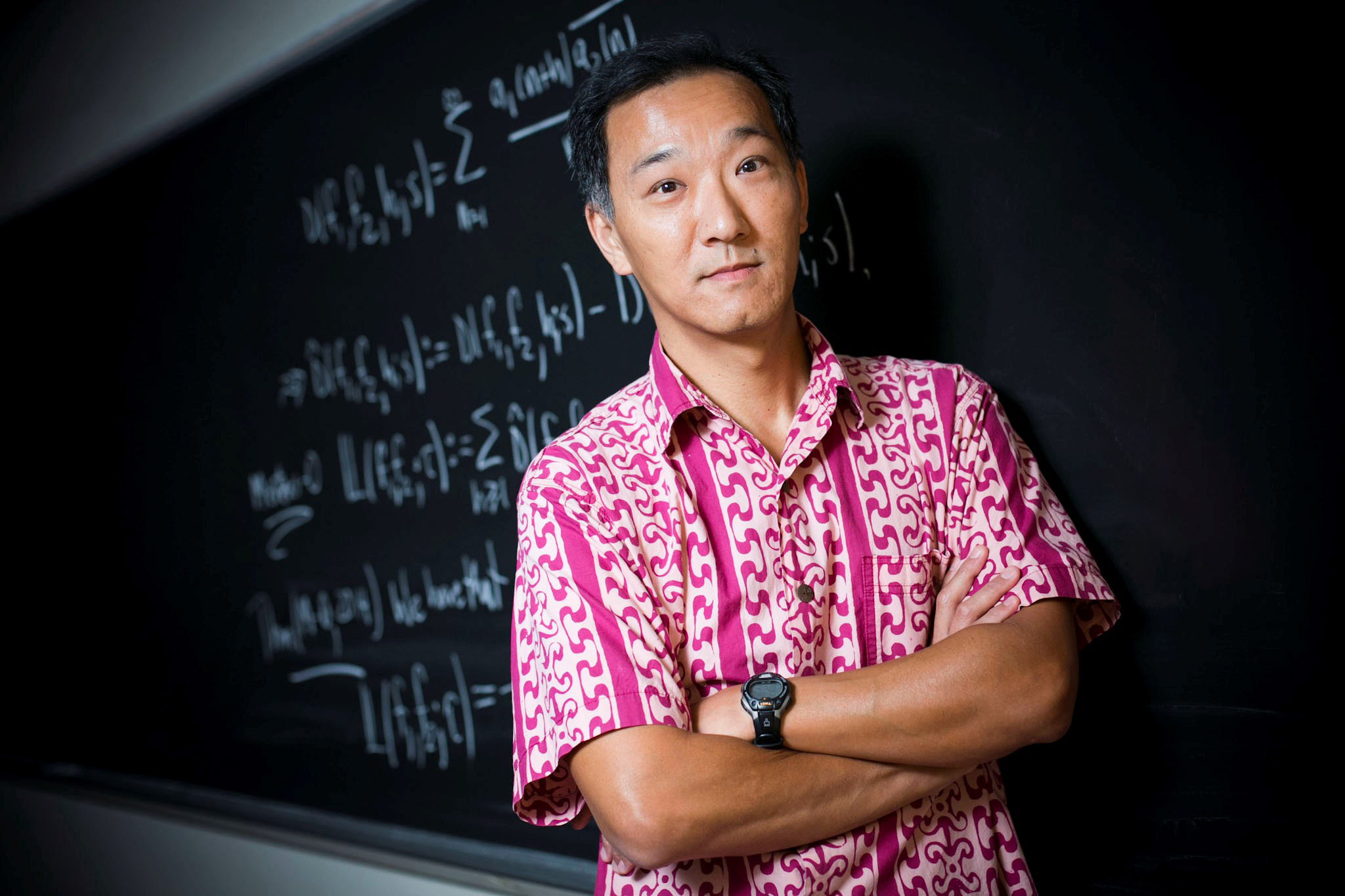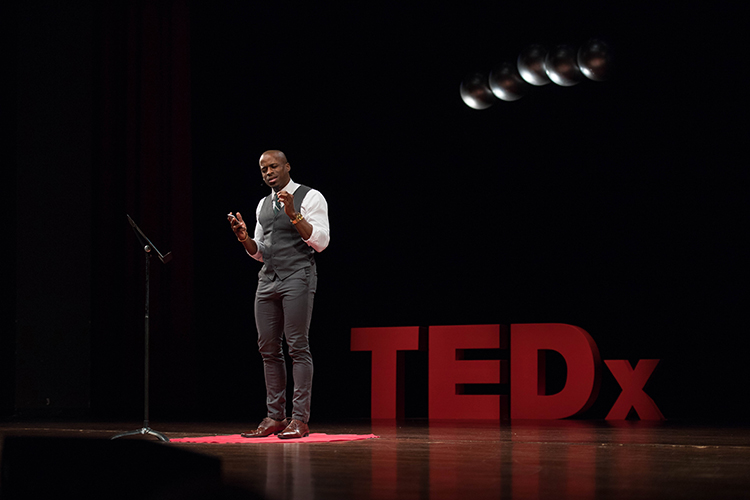
Ken Ono, Thomas Jefferson Professor of Mathematics at the University of Virginia, will visit the University of Mississippi Oct. 10 to deliver the 22nd Dalrymple Lecture in Mathematics. The event is slated for 7 p.m. in the Jackson Avenue Center, Auditorium A. Courtesy photo
How do we save the Earth from the disastrous effects of climate change? There’s no app for that, but there is a theorem—of sorts.
“The future of humankind depends on people who can solve complex problems, and for that we need to cultivate science talent,” said Ken Ono, the Thomas Jefferson Professor of Mathematics at the University of Virginia. “To find the best science talent, we have to search for undiscovered talent, people approaching our most challenging problems in novel ways.”
For Ono, this statement is a demonstrable truth. And to prove it, he points to a two-time college dropout whose theories have propelled generations of scientists forward: Srinivasa Ramanujan.
Ono will visit the University of Mississippi Thursday, October 10 to deliver the 22nd Dalrymple Lecture in Mathematics: “Why Does Ramanujan Matter?” The discussion, set for 7 pm in the Jackson Avenue Center, Auditorium A, is free and open to the public.
The annual talk, presented by the Department of Mathematics, brings distinguished speakers to campus to discuss mathematics and mathematics research in language accessible to a general audience.
“Ramanujan’s work matters because it has formed the basis of number theory, infinite series and continued fractions,” said Ono, who has become somewhat of an evangelist for the groundbreaking work of this self-taught Indian. “He intuitively found answers to problems that were regarded as impossible to solve by the greatest mathematicians of his day.
Born in 1887, when India was still under British colonial rule, Ramanujan was dismissed in his native country because he lacked formal education. To advance his work and escape the cultural and political subjugation of the British, he emigrated to England at the invitation of famed mathematician G.H. Hardy, a professor at the University of Cambridge, with whom he had corresponded and shared his work.
The two became collaborators until Ramanujan died an untimely death from tuberculosis in 1920. He was only 33 years old.
Perhaps his greatest legacy is unpublished work contained in three handwritten notebooks of proofs and equations that he left behind. To this day, mathematicians are continuing to confirm his findings.
“Ramanujan should be a household name like Einstein,” Ono said. “If Hardy hadn’t responded to his letters, he would have been lost to history.”

Ono underscored the importance of collaboration between these men of very different cultures.
“Countries need to collaborate,” Ono said. “They’ve become too polarized, and we need to work together to find the next generation of Ramanujans.”
Another hurdle to finding those people, in Ono’s view, is the lure of the tech industry.
“Many kids start college with dreams of glory in science,” he said. “They want to make the world a better place, but then they realize they can make a quick buck.”
He added that the current educational system favors “over-testing instead of creativity.”
Ono has brought Ramanujan’s story not only to lecture halls but also to the screen.
He was an associate producer of a feature film about Ramanujan, The Man Who Knew Infinity (2016), starring Indian actor Dev Patel in the title role.
“Ken is one of the brightest lights in mathematics today,” said James Reid, Ole Miss chair and professor of mathematics, who organized the Dalrymple Lecture. “We are thrilled to bring him to campus to share his joy of math and his message about how key math talent is to solving the major issues facing society today.”
By Abigail Meisel



